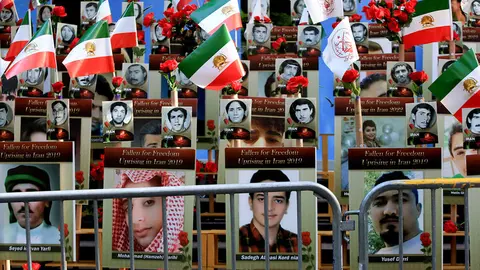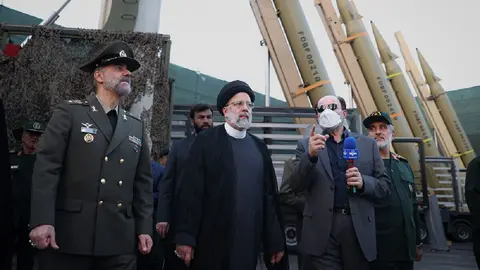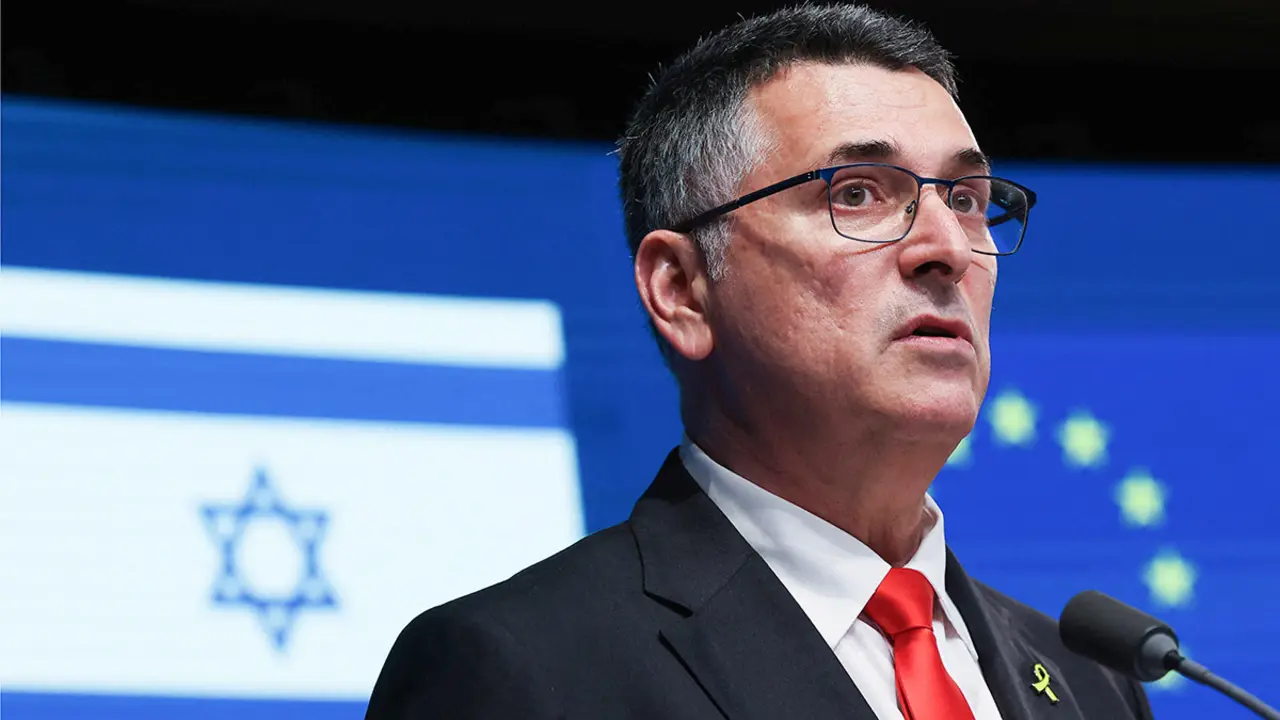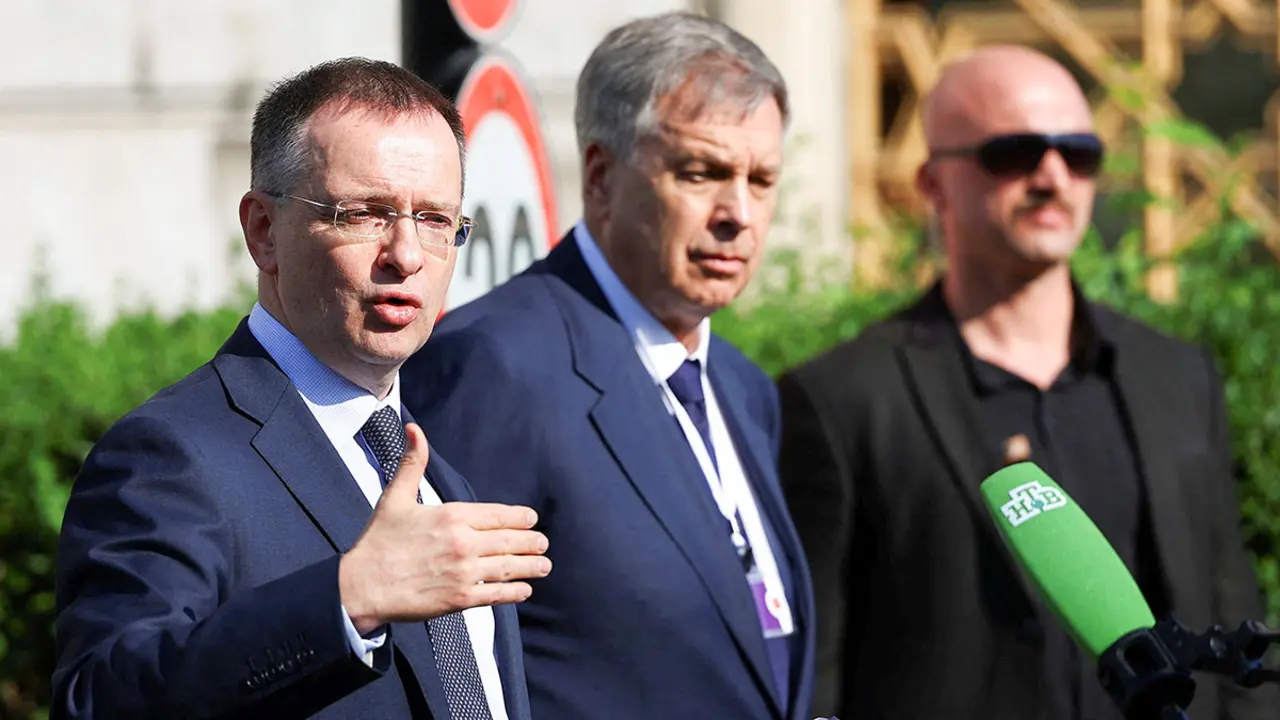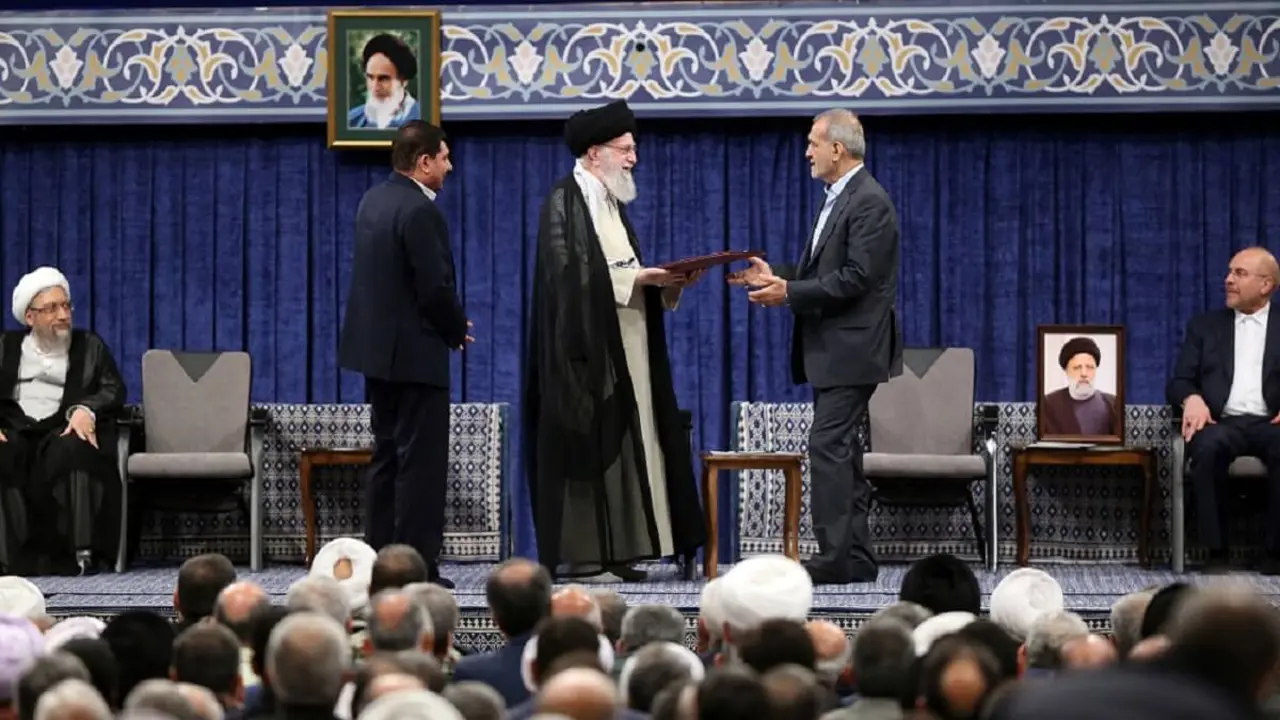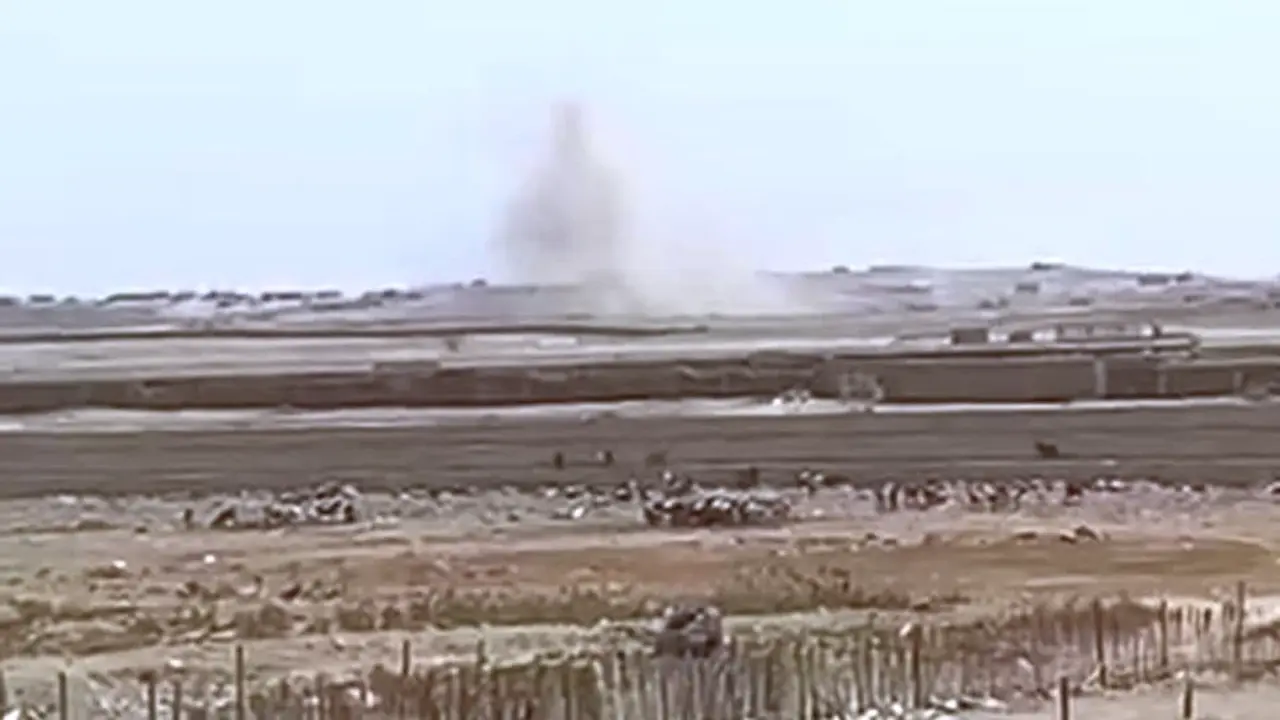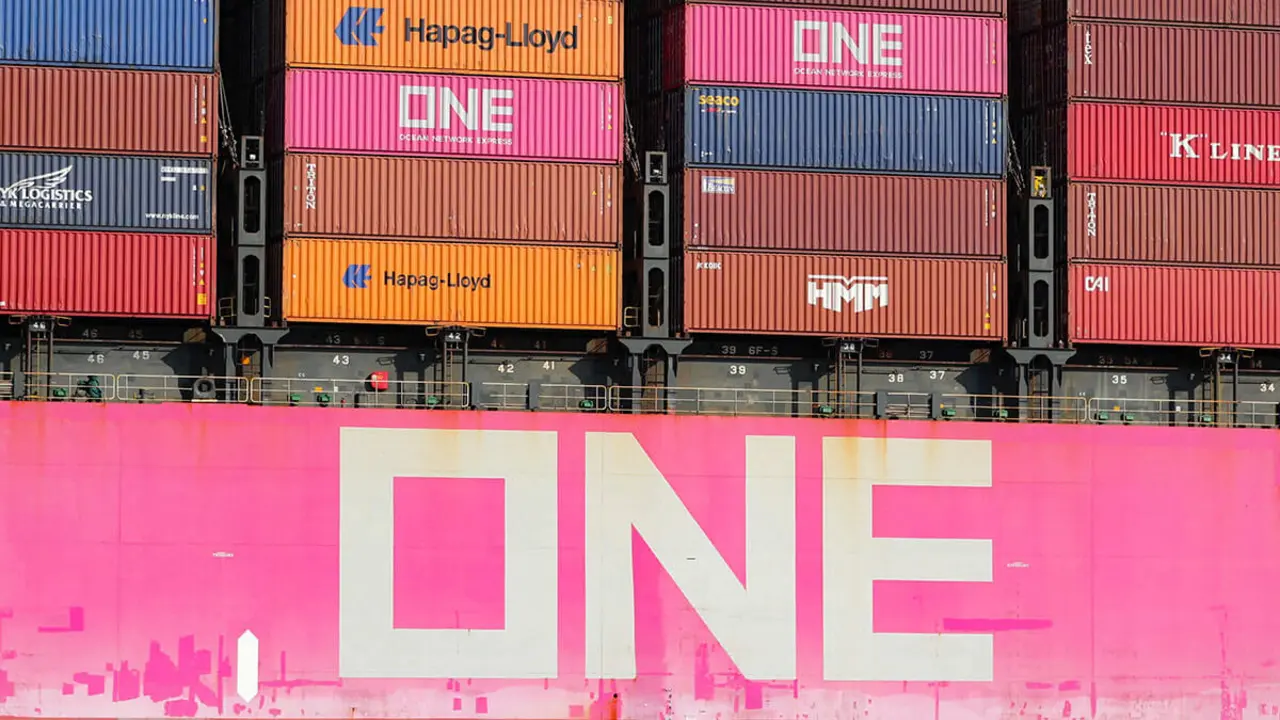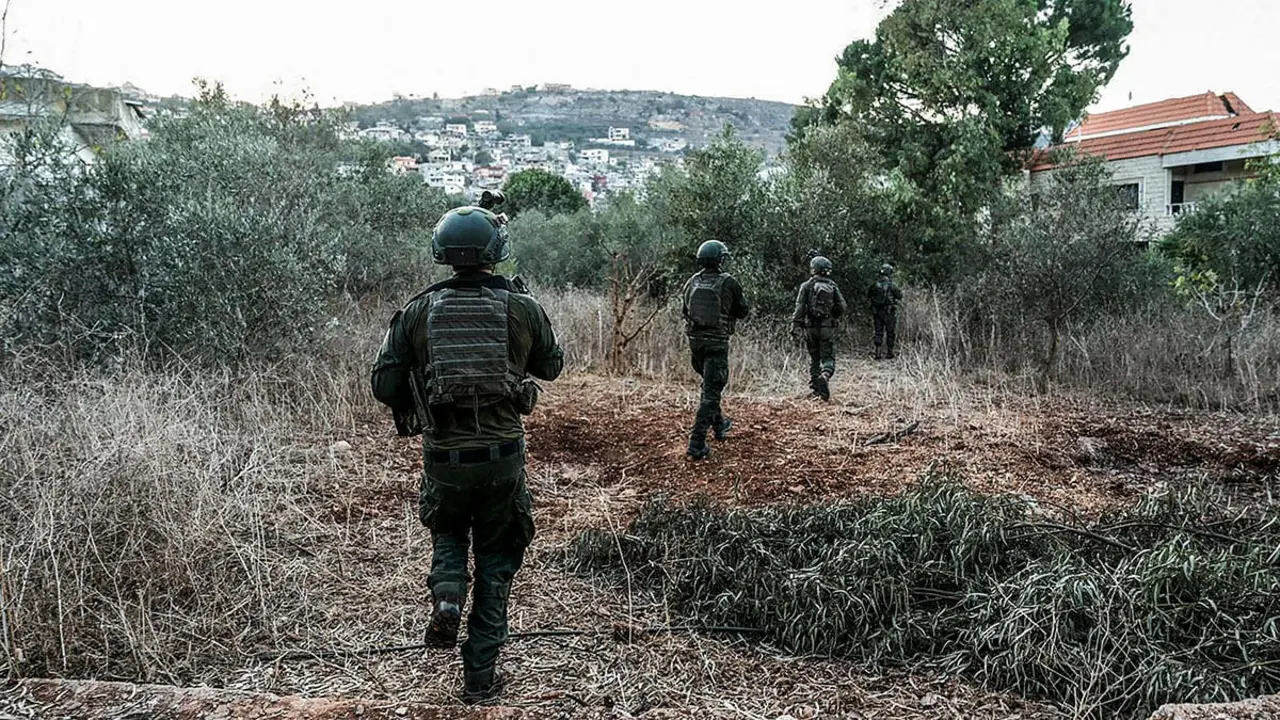Revolutionary Guards ensure continuity of Islamic rule in Iran

Despite the numerous celebrations over the death of President Ebrahim Raisi - known as the 'butcher of Tehran' - no major changes are expected in the Iranian political landscape. Raisi's death will not affect the continuity of the Iranian regime, which is protected by the Revolutionary Guard.
In fact, in the hours following Raisi's death, the authorities have already arrested journalists, activists or relatives of those killed for messages related to the president's death. The father of one of the first people executed in the protests following the assassination of Mahsa Amini has also been sentenced to six years in prison.
Ryma Sheermohammadi, human rights activist and Spanish-Iranian interpreter, analyses in Atalayar the current political situation in Iran, highlighting the key role of the Revolutionary Guard in ensuring the protection of the Supreme Leader inside and outside the borders.
Although the Iranian authorities speak of an "accident", some say it was an attack. What is your assessment?
It's interesting because since it was an accident, there was no press conference, there was no investigation, they don't allow anyone to carry out an investigation in order to answer many questions that we all have in mind. For example, there are absolutely undeniable facts that the Islamic Republic has something to do with this.
First they said it was due to fog and bad weather. In fact, the head of Reisi's own office, in the interview they did yesterday, clearly said that there was no weather problem. Three helicopters left the place of origin and two of them arrived safely, without any problems, and they were the helicopters that escorted Raisi's helicopter.
First they said that there had been a bad landing, but that the president was fine. 12 hours later, after absolute silence, they insisted that they were not sending a military helicopter, but a non-military one. On board this helicopter was a Turkish journalist who said a phrase that has attracted a lot of attention in the Iranian press.
VIDEO: The streets of Tabiz, are filled with thousands of Iranian mourners as they pay their respects to the coffin of late president Ebrahim Raisi. The 63-year-old was killed when his helicopter crashed in foggy mountainous terrain on May 19. pic.twitter.com/vGQSEyCIPm
— AFP News Agency (@AFP) May 22, 2024
The reporter said that, according to what he saw, it looked as if the helicopter suffered an impact and fell down. It is true that holes can be seen in what is left of one of the helicopter's wings.
During those hours of silence on the part of the authorities, every time a journalist or any media outlet published something, they immediately contacted them to erase this information. What's more, they threatened the journalists, which has also been reported on social media and several Iranian media outlets outside Iran have picked it up. They have threatened and told them that here the only source they can quote and say is the official television.
Another strange aspect is the issue of the dead bodies. Both Raisi and the Foreign Minister are completely unrecognisable, while the Imam of Tabriz - another of the passengers - has only a bruise over his eye.
As for the black box, it was curiously removed several days before this trip due to some technical issue. Then they forgot to put it back.
All this is not going to be resolved. The fact that they are not allowing any kind of investigation is one more clear sign that the Islamic Republic has something to do with all this.
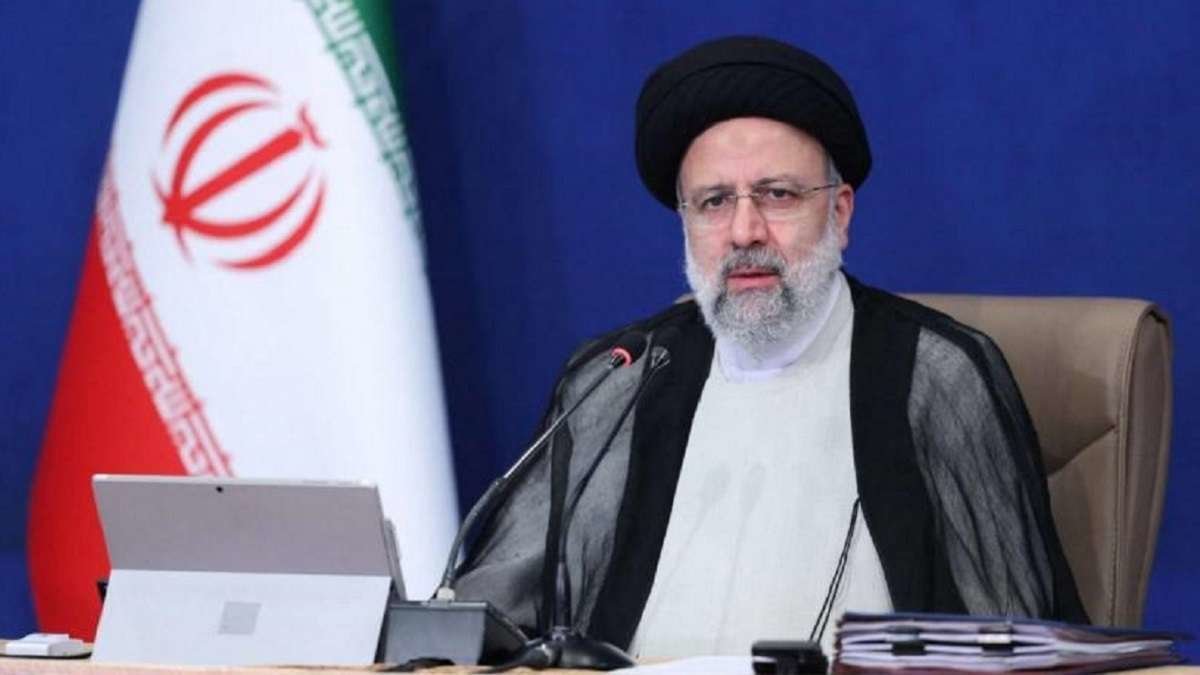
Raisi was positioned as a possible successor to Ali Khamenei. Now out of the picture, how does the line of succession look in Iran?
The name that has always remained over the years and is widely accepted and supported by the Revolutionary Guard is Ali Khamenei's son, Mojtaba Khamenei. He played a key role in the crackdown on protesters in the 2019 protests, since then he has not been exposed too much lest he be criticised.
Raisi was not a potential rival for him as he did not have the characteristics to be Supreme Leader. I say this because many people believe that this was probably an attack provoked by the Islamic Republic because they wanted to get him out of the way as Khamenei's successor. There is more to it than that. I see things that don't make sense and I think it will be for another reason, not because he is a threat to.
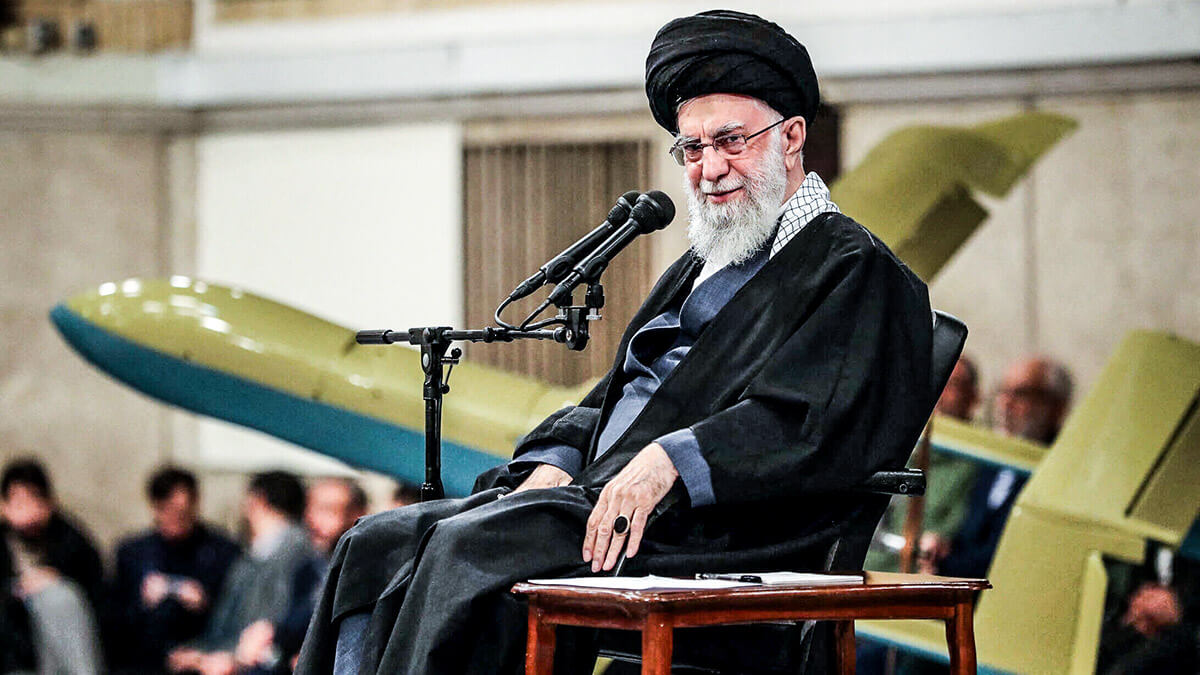
What is the role of the Revolutionary Guard and to what extent can its power surpass that of the Supreme Leader?
The Revolutionary Guard gained full power just after the death of Khomeini and the coming to power of Khamenei. Until then the Revolutionary Guard was a force that focused on fulfilling its military duty in wars. But after Khamenei came to power many reformists resigned and the Revolutionary Guard took over all the power. Even Khamenei created an intelligence agency within the Revolutionary Guard, which in principle has been presented as complementary to national intelligence.
The Supreme Leader and the Revolutionary Guard are complementary. The Revolutionary Guard ensures the continuity and protection of the Supreme Leader's role while ensuring that the regime remains intact within and outside the borders. Inside, by repressing, and outside through its proxies in the Middle East.
In return, they get to keep all the economic and military power in the country. They run everything, including imports, exports and the oil companies.

Another of those who died in the crash was the Foreign Minister, who has not been talked about as much as Raisi. What was his role as head of Iranian diplomacy?
Actually, the head of Iran's diplomacy is Khamenei. All the speeches, the interventions that we hear from the president of Iran or the Foreign Minister go through Khamenei. In fact, there are ministers who are appointed directly by him: the Foreign Minister, the Interior Minister, the Armed Forces and the Intelligence Minister.
The president and his Foreign Minister are the mouthpieces for the lies and propaganda that the regime wants to spread outside the country's borders.
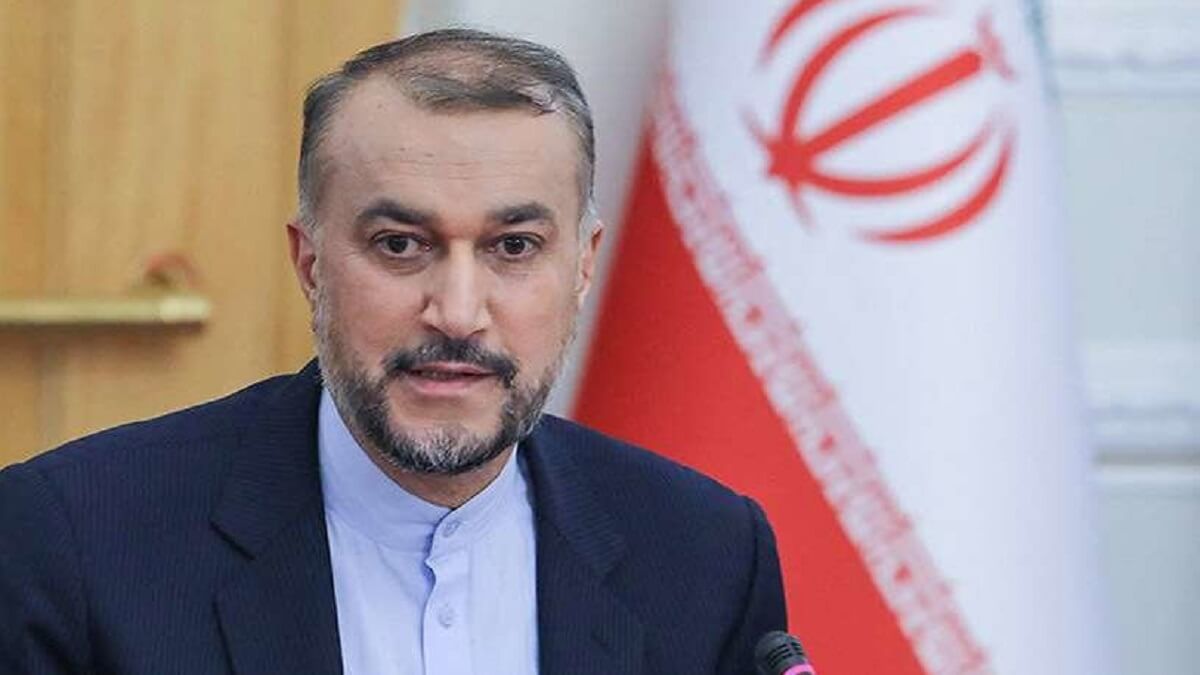
Some world leaders have expressed their condolences for the death of Raisi and the Foreign Minister.
The international community has almost always supported dictatorships. That is a reality that we are seeing clearly. Not even 5% of the support they give to these dictatorships is received by the people. Proof of this is the Women Life Freedom movement which, with more than 500 people killed by Iranian agents and the Iranian military, the most they have done is to condemn it.
„The EU“? Not in my name. My thoughts go to the families of those being killed by #Raisi and its regime. #Notinmyname https://t.co/jixuG3F4fK https://t.co/KkD5FYKNeZ pic.twitter.com/5a0b6yCBrt
— Gert Wöllmann (@Gert_Woellmann) May 20, 2024
The vast majority have decided to look at what is happening and remain silent. So when Iranians see that for a person who has committed crimes against humanity, a member of the death committee, public institutions, for example, the European Union, the United Nations, - institutions that are actually supposed to be founded to uphold democratic principles and defend human rights - remain silent or offer condolences, what it does, on the one hand, is to increase Iranians' hatred towards the dictatorship in their country and also towards the international community.
One should only look at the reaction on social media. These kinds of gestures and acts, what they make Iranians feel is a lot of aversion towards the system itself and also towards these institutions. On the other hand, they also realise that they have no one to support them, that everything is going to depend completely and utterly on themselves. It is very clear to us Iranians, both those of us on the outside and those of us on the inside.
Just a few months ago, Ebrahim Raisi executed her son, Now, she’s dancing over his death in a helicopter crash.
— Masih Alinejad 🏳️ (@AlinejadMasih) May 20, 2024
I told you Iranian women are wounded, but unbowed to their oppressors.
My social media is flooded with videos of the family members of those killed by the President of… pic.twitter.com/y2PR1XkGGx
The accident and subsequent rescue operation exposed some of the regime's shortcomings. Despite possessing advanced military drones, they failed to locate the president immediately after the crash. Do Western sanctions have anything to do with it?
It really has nothing to do with sanctions. The helicopter, a 1990 model, was from Khatami's time. Over the years the Islamic Republic has always claimed to have built state-of-the-art helicopters and drones, claiming to be self-sufficient. It's all propaganda, because at sensitive times like this, when there was an accident, they had no resources. They had to accept help from Turkey and, in fact, it was thanks to a Turkish helicopter that had night visibility that they found the wreckage of the helicopter.
The Islamic Republic itself had said some time ago that they had managed to build helicopters of this type. But it is all hard propaganda to maintain the confidence of the minority who believe in them.
Throughout their 40 years, every time they have failed to live up to their statements and propaganda, they always blame other countries, i.e. Israel or the United States. People clearly see that this is pure propaganda and that in the end all this money and resources of the country end up in huge cases of corruption. They are kept by the leaders of the Revolutionary Guard, by their sons who live in foreign countries, in Canada, in England, here in Spain. The Iranians already know this, the Western world needs to see it too.
La Unión Europea lamenta la muerte de alguien cuyas acciones han sido calificadas por Naciones Unidas como crímenes contra la humanidad. Qué manera de reírse del sufrimiento de los iraníes y qué manera tan penosa de terminar su mandato, Sr. Borrell.#Raïssi https://t.co/9040ltuyBf
— Ryma Sheermohammadi (@Rsheermohammadi) May 20, 2024
After his death, what is expected now in Iran? Could Raisi's death be the beginning of the end of the regime?
I don't think it will change anything. The vice-president has already taken office and in 50 days there will be elections. They will choose whoever they have in mind, as happened with Raisi, who was trusted by Khamenei.
They will choose a similar profile, someone they trust the most, to take Raisi's place. I think there are two factors we could mention here. Unfortunately, the Iranians do not have a strong, consolidated and united opposition, because if we had had it right now it would have been the best time for people to take to the streets and for this long-awaited change to take place. But the opposition outside the country is not united.
On the other hand, as long as there is a criminal institution like the Iranian Revolutionary Guard, there is not going to be any change in Iran because of the very structure of the regime.
Is repression against citizens expected to increase?
There have already been arrests following Raisi's death. The authorities have arrested several relatives of victims of the regime for posting comments of joy and celebration. Journalists and activists have also been arrested in the wake of Raisi's death.
The authorities have also sentenced the father of one of the first people executed in the protests following the death of Mahsa Amini to six years in prison.
🚨Mashallah Karami, father of 22-year-old Mehdi Karami who was executed by the regime, has been detained by suppressive forces. Regime forces raided their home and even stole from Mehdi’s memorial.
— Kasra Aarabi (کسری اعرابی) (@KasraAarabi) August 22, 2023
This family’s lost everything. We must be Mashalla’s voice! #ماشالله_کرمی pic.twitter.com/iHMkw7UgAv
They also confiscated all his property, all his material belongings. He lives in a humble house with four carpets. They also confiscated the medals his son had won in the karate championships.
The father of Mohammad Mehdi Karami walked from 1:30AM until 8:30AM to get to his son and Mohammad Hosseini’s grave in order to visit them, and have breakfast by their grave.
— Emily (@emilyshar1) August 19, 2023
This is what the islamic regime does to innocent families, no one deserves to live this way. pic.twitter.com/m9QkfUBDFb
Mohammad Mehdi Karami, 21, was executed on 6 January 2023. His father, an elderly man, did nothing but visit his son's grave, wash his gravestone and also that of another boy who was executed on the same day who had no family.

